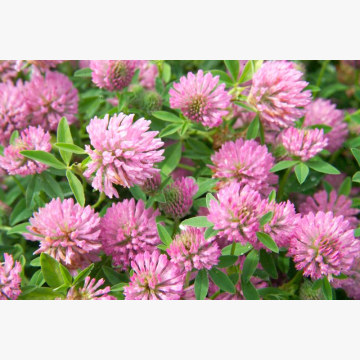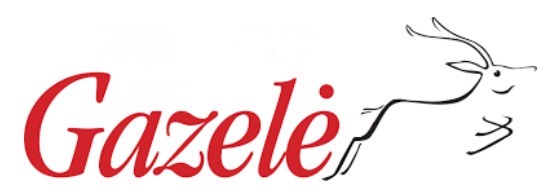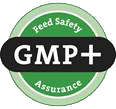- Home
- Seeds
- Fodder grasses and legumes
- SMALL GRAIN LEGUMES
- Red clover RAUNIS
Category: Fodder grasses and legumes
FOR CONSULTATIONS APPLY TO:
Commercial director
Lina Smalskienė
tel. +370 618 02 551
e-mail linak@agrolitpa.lt
Sales manager
Tautvydas Kliučininkas
tel. +370 681 35 093
e-mail tautvydask@agrolitpa.lt
Sales manager
Eglė Petkevičienė
tel. +370 626 95 458
e-mail eglep@agrolitpa.lt
Sales manager
Kotryna Nakrošytė
tel.: +370 601 39 282
e-mail kotryna@agrolitpa.lt
Red clover RAUNIS
Trifolium pratense L.
A mid-early, high yielding and winter hardy diploid clover suitable for farming on organic farms
- Excellent regrowth in spring and after cutting
- High protein content in dry matter
- Good resistance to diseases
- Very good winter hardiness
- Medium resistance to diseases
- Could be grown pure or in mixtures
- Best to use feed for 1.5-2 years
- Plants 30-60 cm high and 45 cm wide
- Leaves – greyish green, up to 5 cm long and 1 cm wide
- Flowers – red, concentrated in inflorescences 5-6 cm long and 2 cm wide, often double
- Blooms in late June-August
- Winter hardiness – good
- Resistance to diseases – medium
- Maturity – medium early
- Regrows well
- Two harvests are possible during the growing season
- Dry mass yield – 8-10 t/ha
- Seed yield – medium/high (0.3-0.5 t/ha)
- Nutritional value – high
- Suitable for mixtures for fodder
- Combines well with timothy grass, perennial ryegrass and meadow fescue
- Can be used to produce hay in medium-early fodder mixtures, for grazing in cultural pastures
- Not very demanding on the soil, it grows best in sandy loam, loamy soil with a sufficient amount of calcium
- Since 2008 recommended for cultivation in organic farms
- Winter hardy
- Excellent regrowth in spring and after cutting
- Two yields could be harvested during the growing season
- Good/moderate resistance to diseases
- High protein content in dry matter
- Excellent feed digestibility
- The variety is suitable for growing alone or in mixtures with other fodder grasses for green fodder
- For fodder, it is best to use for 1.5-2 years
- Suitable for growing in organic farms
The varietal parameters may differ from those indicated here when the testing circumstances differ from quondam
Recommended sowing rate: 10-15 kg/ha
Recommended sowing rate when growing for green manure: 13-18 kg/ha
UAB „Agrolitpa“
Keravos sreet. 17, Kerava,
LT-38 131 Panevėžys district, LITHUANIA
Enterprise's code 168598128
VAT code LT685981219
Tel. +370 615 11 315
E. mail info@agrolitpa.lt
Keravos sreet. 17, Kerava,
LT-38 131 Panevėžys district, LITHUANIA
Enterprise's code 168598128
VAT code LT685981219
Tel. +370 615 11 315
E. mail info@agrolitpa.lt




.JPG)

